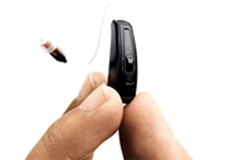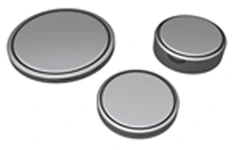- Home
- Providers
- Services
- Hearing Evaluations And Testing
- Hearing Aid Fittings
- Hearing Aid Repair
- Custom Earmolds & Ear Plugs
- Tinnitus Evaluation
- Concierge Audiology
- In-home Hearing Services
- Real Ear Measurement
- Cerumen Management
- Tele-Audiology
- Types Of Hearing Aids
- Hearing Aid Styles
- Smart Hearing Aids
- Hearing Aids We Carry
- Oticon Hearing Aids
- Phonak Hearing Aids
- ReSound Hearing Aids
- Signia Hearing Aids
- Rexton Hearing Aids
- Sonic Hearing Aids
- Starkey Hearing Aids
- Unitron Hearing Aids
- Widex Hearing Aids
- Caring For Your Hearing Aids
- How-To Videos
- OTC Hearing Aids
- Assitive Listening Devices (ALDs)
- Hearing Loss And Brain Health
- Blog
- Review Us
- Contact Us
- FAQs
Services
Hearing Aids
Caring for Your Hearing Aids: Maintaining Your Devices

Hearing aids require daily care to ensure they perform well for years to come.
But don’t worry, it only takes a few moments out of your day to adequately maintain them. Here are some quick tips to gain a better understanding of how to care for these incredible devices:
Cleaning
- Thoroughly wipe your hearing aids daily with a dry, soft cloth.
- Never use water or any cleansers on your devices; they must always stay dry.
- Store your aids in a dehumidifier kit to reduce moisture.
- Regularly remove earwax from your device using a wax loop or brush.
- Keep sounds crisp by changing your wax filters every 1-2 months or whenever sounds seem weak.
- If your earmolds or tubing become stiff, dry, discolored, or cracked, schedule an appointment with us for a replacement.
Storing
- Leave the battery door open when you are not wearing your hearing aid.
- Protect your device from moisture and humidity by storing it in a cool, dry place.
- Keep your aid away from excessive heat.
- Hearing aids should be kept in a protective case. Never put them in your pocket or wrap them in a tissue.
- Small hearing aids are a choking hazard. Keep them out of reach from pets and children.
Care
- Hearing aids should always stay dry. Remove them before showering, swimming, or entering a sauna or steam shower.
- If your devices get wet, immediately open the battery door and remove the battery. Call our office to schedule an appointment to ensure they have not become damaged.
- Personal products like hair spray, sunscreen, makeup, or lotion can damage your devices. Remove your hearing aids before using these items.
- Contact our office to schedule routine maintenance and performance checks.
- Handle your hearing aids with care and avoid dropping or banging them on hard surfaces.

Hearing Aid Batteries
Depending on your specific model, you may find that you use a fair amount of batteries each month, but every situation will be different. Some styles offer rechargeable options, giving you the convenience of never having to worry about changing your device’s batteries again. Yet in most cases, you can expect to change your hearing aid batteries every 5 to 21 days depending on the style, battery size, and how frequently you use your devices. To help extend your battery life, try the following options:
- Always keep batteries in a dry location that is out of reach from pets and children. Do not place your batteries in the refrigerator.
- Dead batteries should be disposed of immediately as they might leak or corrode your hearing aid.
- Batteries come with removable tabs. Do not remove the tab until you are ready to use the battery, or else it will slowly lose power.
Never place batteries in your mouth. If a battery is swallowed, call the battery ingestion hotline printed on the back of each pack of batteries immediately.

